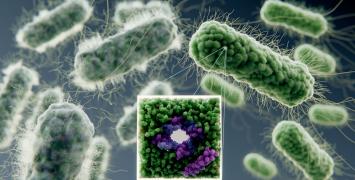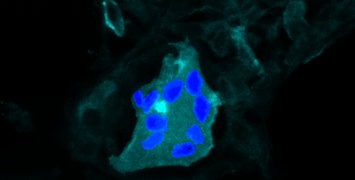New knowledge to fight back against antibiotic resistance
The use and misuse of antibiotics has accelerated the emergence of drug-resistant bacterial strains, threatening our ability to treat common diseases. EU-funded research has shed new light on the mechanisms behind these microbial mutations, with implications for our understanding of diseases and resistance to treatment.

Humans have an intimate relationship with bacteria. Each of us plays host to between 10 and 100 trillion symbiotic microbial cells, both inside and out. While most bacteria live in harmony with us, some can cause illnesses such as throat and ear infections. Since the 1940s, antibiotics have been developed to fight such infections.
However, a new problem has emerged in recent years: antibiotic resistance. Microbial mutations create resistant germs which grow, multiply and quickly spread to family members, schoolmates and colleagues. New strains of infectious diseases can be harder and more expensive to treat. The ECOADAPT project funded by the European Research Council (ERC), completed in November 2015, has helped to increase our understanding of how fast – and by which mechanisms – bacteria adapt.
Tracking bacterial evolution
“The rate and manner by which bacteria evolve and develop resistance to important selective pressures – imposed by both our immune system and by antibiotics – are of tremendous significance,” explains Isabel Gordo from the Fundacao Calouste Gulbenkian in Portugal who received an ERC Starting Grant to lead the ECOADAPT project. “These factors influence both the chance of ‘evolving’ pathogenic bacteria that can harm us, and the manner in which we can treat infections caused by bacterial pathogens.”
The ECOADAPT project demonstrated that bacteria adaptation in the gut is rapid and characterised by complex evolutionary dynamics. “This has important consequences for our understanding of diseases, because it shows that bacteria of the microbiota are not static entities – as has often been assumed – but are capable of constantly generating new variants,” explains Gordo.
The project also showed how fast non-virulent bacteria can evolve and develop pathogenic traits. The genetic basis of the new virulent strain was dissected at the genome level, and a repeatable evolutionary scenario emerged. This implies that bacteria may evolve from being harmless to being pathogenic in a relatively small number of steps. This knowledge enables researchers to better anticipate bacterial evolution.
Some virulent bacterial clones exhibited increased resistance to certain antibiotics, while displaying increased sensitivity to others. Furthermore, many mutations that confer resistance to commonly used antibiotics provided a survival advantage for bacteria in the intracellular environment of macrophages (a type of white blood cell). “These findings have important implications for the evolution of resistance in the context of infections,” says Gordo.
Advancing scientific knowledge
A key benefit of the ERC funding was that it enabled Gordo to study bacterial adaptation in real time, in the presence of immune system cells and under the pressure exerted by a complex and diverse community of other bacteria. Next-generation sequencing technologies were also used to determine the speed and most likely evolutionary paths of bacterial adaptation.
“Without this ERC grant it would have been extremely difficult for my group to grow and expand its expertise in order to perform this interdisciplinary work,” explains Gordo. The grant came at a crucial time during the researcher’s career, when support for science was facing cuts.
The knowledge generated under ECOADAPT has also prompted new lines of scientific query, opening up the possibility of new research projects and collaborations.






